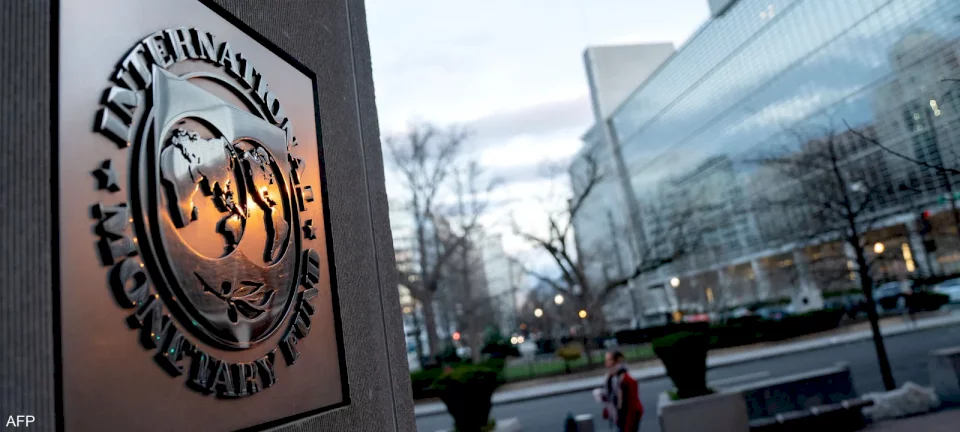
IMF Raises Growth Forecasts for Oil-Importing Countries' Economies Over Two Years
SadaNews - The International Monetary Fund has raised its forecasts for the growth of oil-importing economies in the Middle East, North Africa, Afghanistan, and Pakistan for the current and upcoming year, expecting these countries to benefit from falling crude prices and a declining dollar, which will also help reduce inflation by more than half.
According to the updated version of the "Regional Economic Outlook" report for the Middle East and Central Asia, the IMF predicts the region's economy will grow by 3.5% in 2025 and 4.1% next year compared to 3.2% and 3.9% respectively, which were expected in May.
The region includes countries such as Egypt, Jordan, Lebanon, Morocco, Pakistan, Tunisia, Palestine (the West Bank and Gaza), Afghanistan, Djibouti, Mauritania, Somalia, Sudan, Syria, and Yemen.
The report indicates that oil-importing countries in the region benefited this year from falling oil prices after the "OPEC+" alliance ramped up production faster than anticipated, alongside the recovery of sectors such as tourism, agriculture, and remittances from expatriates.
It added that the larger-than-expected decline of the dollar will assist countries with greater exchange rate flexibility in confronting inflationary pressures as local currencies rise, reduce import bills, decrease the cost of dollar-denominated debts, and relieve external financing pressures amid growing demand for local assets.
Inflation Decreases by More Than Half
The IMF anticipates that inflation in oil-importing countries will follow a downward trajectory, averaging 13.1% this year compared to 26.5% in 2024, with rates expected to be 9.4% next year and 5.7% by 2030.
It noted that inflation in Egypt is expected to remain below the high levels recorded in recent years, supported by the diminishing effects of previous measures to devalue the currency and increase fuel prices, while it will slow slightly in Tunisia due to the ongoing monetary financing of the fiscal deficit.
Earlier, the IMF had also raised its growth forecast for Egypt to 4.5% this year, up from a previous estimate of 4.1%, driven by better-than-expected performance in the first half of the year.
This improvement in the IMF's outlook for the largest Arab country by population comes after more than a year and a half since Egypt received international support packages, which included an agreement with the IMF on a loan program worth $8 billion to overcome its worst economic crisis in decades.
Among the key sectors supporting the Egyptian economy is tourism, which grew by 21% after the country welcomed 15 million tourists during the first nine months of 2025.
Remittances from Egyptians working abroad also reached their highest levels ever at $36.5 billion during the fiscal year ending last June, according to a statement by the central bank in August.
Tourism, Investments, and Agriculture Support Morocco
In Morocco, the IMF expects the economy to benefit from a recovery in tourism and an increased pace of investments in infrastructure projects, especially those related to hosting the 2030 FIFA World Cup, along with a recovery in the agricultural sector.
The IMF also raised its growth forecast for the Moroccan economy to 4.4% this year and 4.2% in 2026, compared to previous forecasts of 3.9% and 3.7%, respectively.
This comes after the Moroccan economy achieved its highest quarterly growth rate in 14 quarters at 5.5% in the second quarter of the year, although the statistical agency in the kingdom expects a slowdown in growth during the second half of the year.
Building a Safety Margin
The IMF urged countries with limited financial reserves to prioritize rebuilding their financial safety margins in anticipation of potential risks, noting expectations that public debt will stabilize at relatively high levels or decrease slightly in countries like Egypt, Jordan, Morocco, and Tunisia.
It added that building financial reserves in these economies requires implementing a credible process to adjust public finances, carefully calibrated to match the current stage of the business cycle, while maintaining essential investments for long-term growth and minimizing burdens on the most vulnerable populations.

The Trap of High Prices: Debts Haunt Germans and Bankruptcy Knocks at Their Doors

Major Changes in the Saudi Public Investment Fund… What is Happening?

Gold Stabilizes and Heads for its Seventh Consecutive Monthly Gain

The IMF Disburses Approximately $2.3 Billion to Egypt Following Two Reviews of the "Reform...

Oil Rises Amid Expectations for Nuclear Negotiations Between Washington and Tehran

Gold prices near $5187 per ounce as tensions escalate

How Will Oil Be Affected If Tensions Between Washington and Tehran Escalate?
